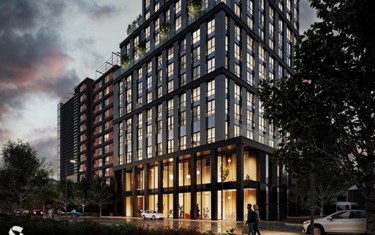This blog has been produced by Madeleine Pauker and Claire Stafford, both Planning and Policy Advisors at the RTPI.  2024 is set to be another busy year for planning reform in England as Government presses on with proposals intended to expedite the delivery of net zero infrastructure, housing, and local plans. And a general election coming later this year could usher in a new government and reform agenda. Either way, planners can expect another wave of policy proposals and plans to navigate. This blog highlights some of those that have already been announced.
2024 is set to be another busy year for planning reform in England as Government presses on with proposals intended to expedite the delivery of net zero infrastructure, housing, and local plans. And a general election coming later this year could usher in a new government and reform agenda. Either way, planners can expect another wave of policy proposals and plans to navigate. This blog highlights some of those that have already been announced.
Street votes
A consultation on street votes is already underway. These local referendums, enabled by the Levelling Up and Regeneration Act, will empower residents to propose development on their street and vote on granting planning permission. Government envisions street votes gradually increasing housing density in the suburbs by enabling blanket permissions for homes extensions or back garden houses – although they could just as well be used to enlarge existing homes. The RTPI is responding to this consultation, drawing on insight from our Urban Design and Independent Consultants networks.
National Development Management Policies
National Development Management Policies (NDMPs) will replace planning policies that tend to be similar across local plans, such as policies around heritage, flood risk, and inappropriate Green Belt development. Government maintains that NDMPs will result in “swifter”, “slimmer” and more “locally relevant” plans.
The consultation, likely in spring, will provide more information on NDMPs’ scope and how Government plans to implement them. The RTPI lobbied for NDMPs to undergo public consultation and to be written with regard to climate change, and secured concessions on these points. We have also commissioned research on similar policies abroad. When the consultation emerges, we will invite RTPI members to share their views.
New permitted development rights
Also in the spring, Government plans to consult on three new permitted development rights: 1) allowing houses to be converted into two flats provided the exterior remains unchanged, 2) ending the restriction on heat pumps one metre from a property boundary, and 3) prioritising electric vehicle charging hubs.
Build-out rates
Later in 2024, Government will consult on improving housing build-out rates and financially penalising developers who do not build out quickly enough. Proposals may specify that build-out rates can factor into planning decisions and mandate developers publicise missed targets and plans for diversifying site housing tenures.
Spatial planning for infrastructure
Government seems to be embracing more spatial infrastructure planning. As part of its action plan to accelerate building new grid infrastructure, the Electricity System Operator will produce a Strategic Spatial Energy Plan, which will set out ‘what needs to be built, where, and when’, according to the National Grid’s 2035 plan. This will provide the evidence base for new grid transmission infrastructure as well as the location of offshore wind and hydrogen projects.
A Government taskforce led by the Chief Planner will also investigate applying ‘a more spatial planning approach’ to transport, water, wastewater, and waste in mid-2024.
Statutory consultees
Housing secretary Michael Gove has appointed Sam Richards, Chief Executive of campaign group Britain Remade, to undertake a three-month review into the role of statutory consultees in the planning system, which will report back later in the year.
Cambridge 2040
Government will advance its vision for Cambridge as England’s life sciences hub, establishing a development corporation to plan a new urban quarter of 150,000 homes. But local leaders have warned water scarcity could derail Cambridge 2040. Gove has hinted new development restrictions on water use and pursuing additional supply, but the specifics here will be critical given water poses the most significant blocker.
Biodiversity Net Gain
Mandatory Biodiversity Net Gain rules take effect by the end of January, with small sites applicable from April. Draft guidance and regulations published in November ask developers to prioritise onsite biodiversity improvements over offsite mitigation. But roll-out could prove challenging – an RTPI survey found most public sector planners lack dedicated BNG resources and expertise.
The year ahead
Accelerating the delivery of housing and net zero infrastructure will remain priorities for Government – priorities that will likely carry over to a potential new Labour government. However Labour’s New Towns proposals would require a new policy approach to housebuilding and they have suggested that they’re likely do away with certain initiatives championed by this Government, such as the Infrastructure Levy. For planners, 2024 will be another bustling year of reforms and, potentially, another major shake-up of the planning system.


